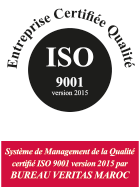
Regularly scrutinized by credit rating agencies and international financial institutions, Morocco’s economy continues to navigate a fine balance between confidence and resilience. Moody’s has just reaffirmed its Ba1 rating for the country a signal of cautious encouragement. Meanwhile, the IMF has acknowledged Morocco’s reform efforts but continues to flag ongoing vulnerabilities. On Wednesday, the World Bank released its latest country economic update under the theme: “Prioritizing Reforms to Improve the Business Climate.”
Starting Monday, the Moroccan government launched a roadshow to raise funds to finance key reforms and infrastructure projects.
There’s no denying Morocco’s resilience in the face of external shocks. Structural reforms like the expansion of social protection and the overhaul of the tax system are beginning to pay off. Tourism is thriving, and the automotive and aerospace industries continue to show strong performance.
Now more than ever, it’s time to see the new Morocco through a different lens, say the country’s public relations advocates. There’s no doubt Morocco has come a long way, and history is there to prove it. History loves its milestones they’re powerful teaching tools and serve as reference points for measuring progress. But they also serve to highlight all that remains unfinished, and all the delays that give rise to inefficient systems devoid of agility and intelligence, and carrying outsized consequences.
Morocco has a lot on the line and major milestones ahead. That’s why it’s critical to work in the opposite direction: toward transformation. Toward changing what can no longer be sustained. It’s time to set new standards ones that empower as many citizens as possible to become agents of change and help drive the country toward a new era and a new pace.


























